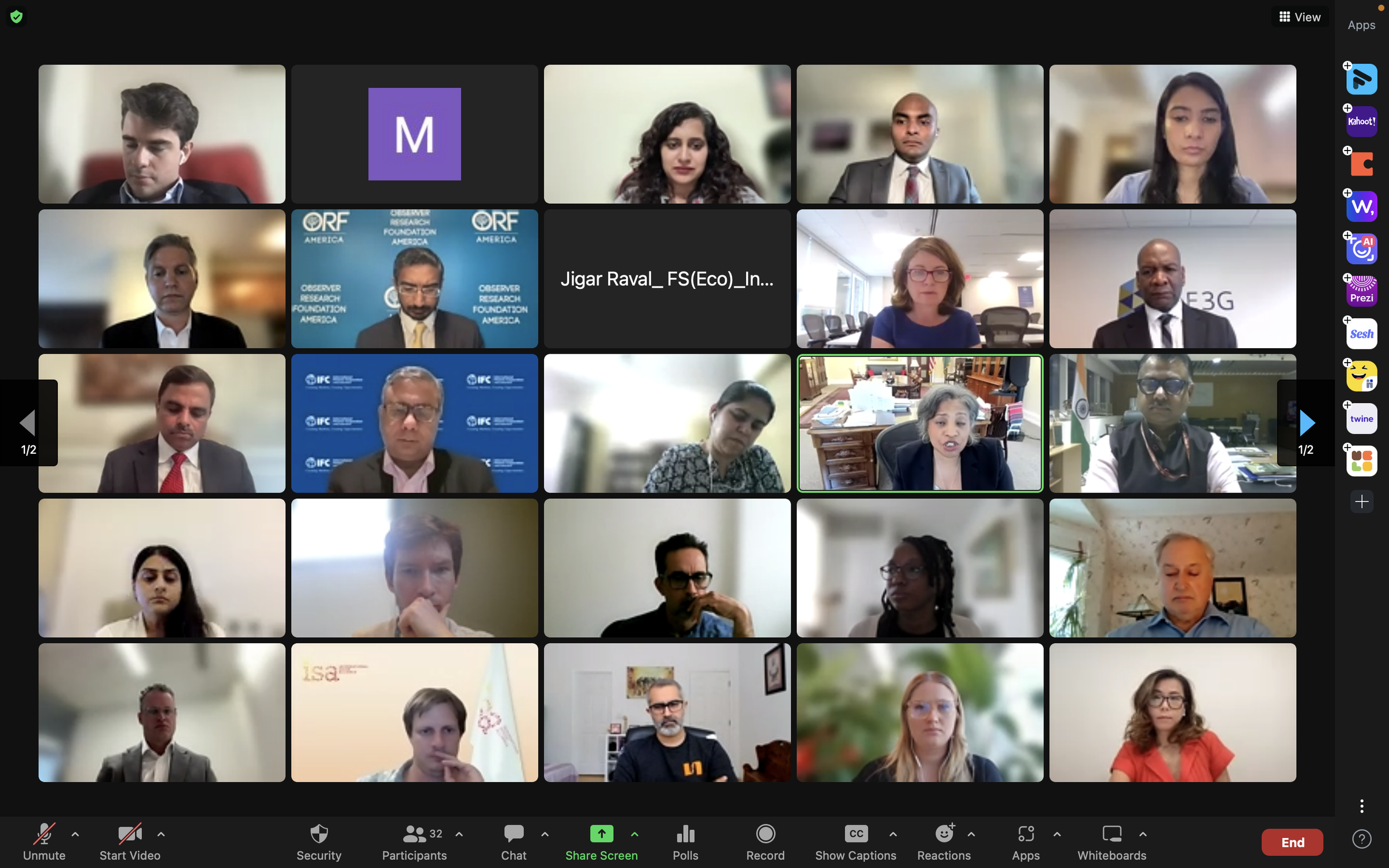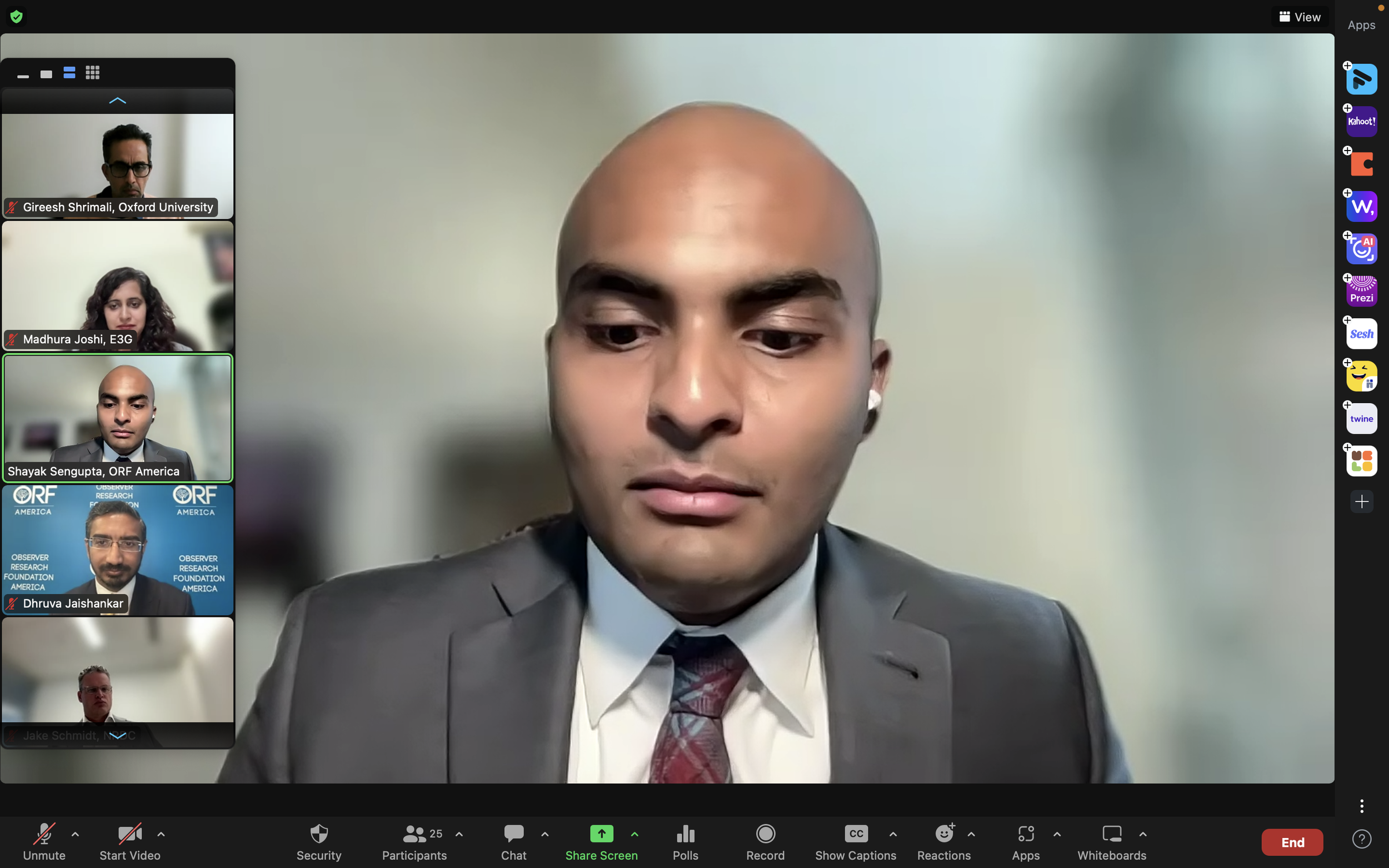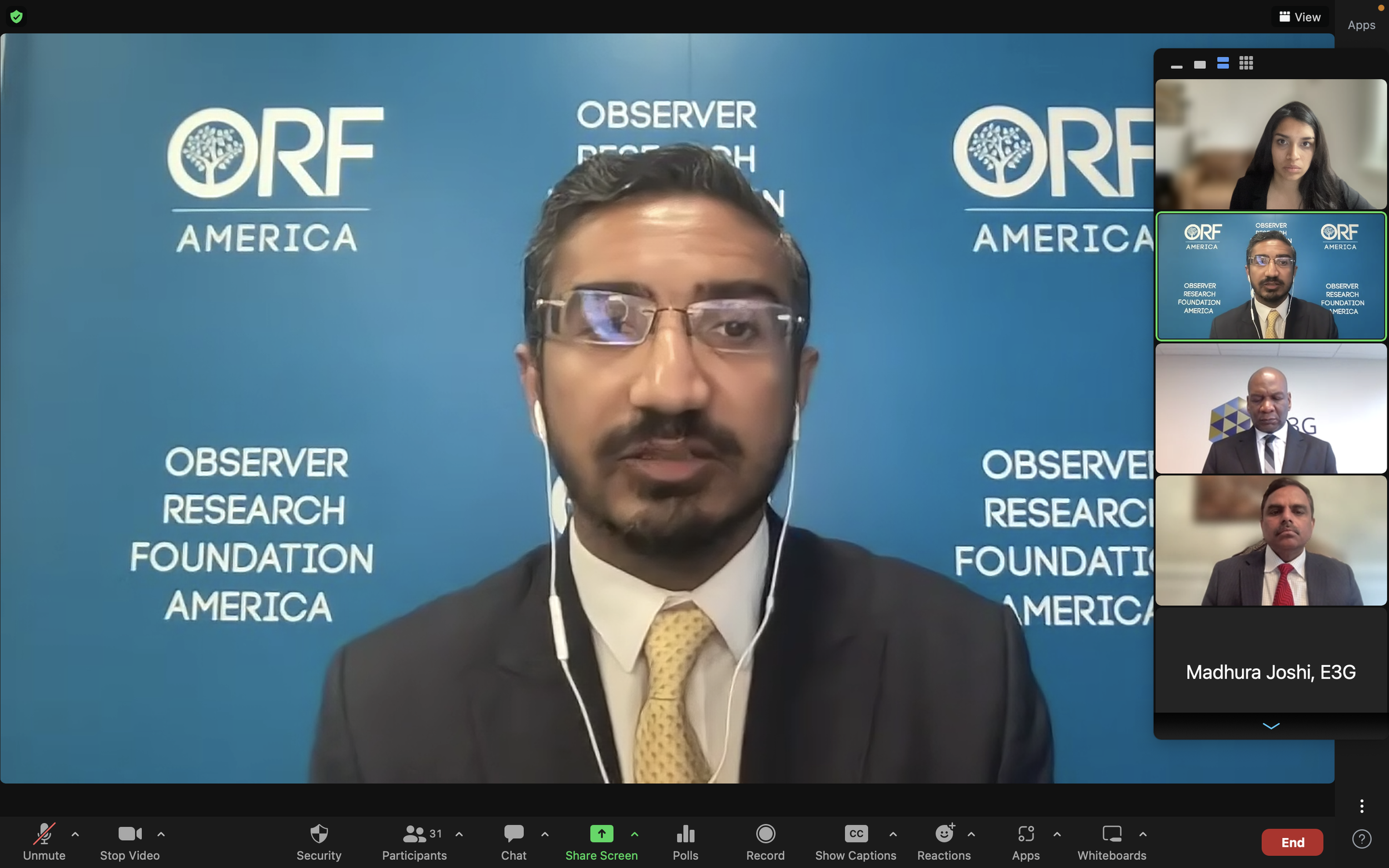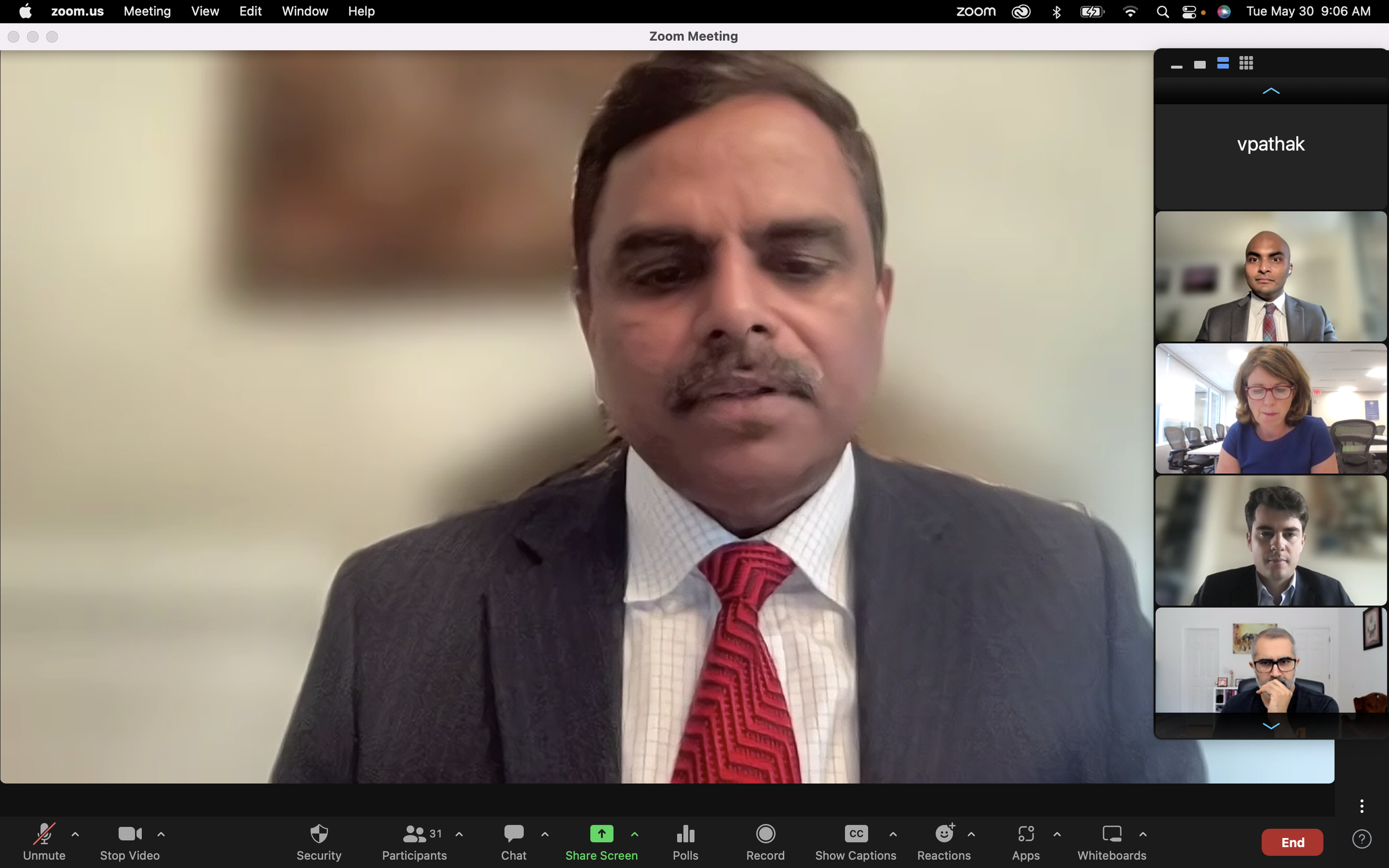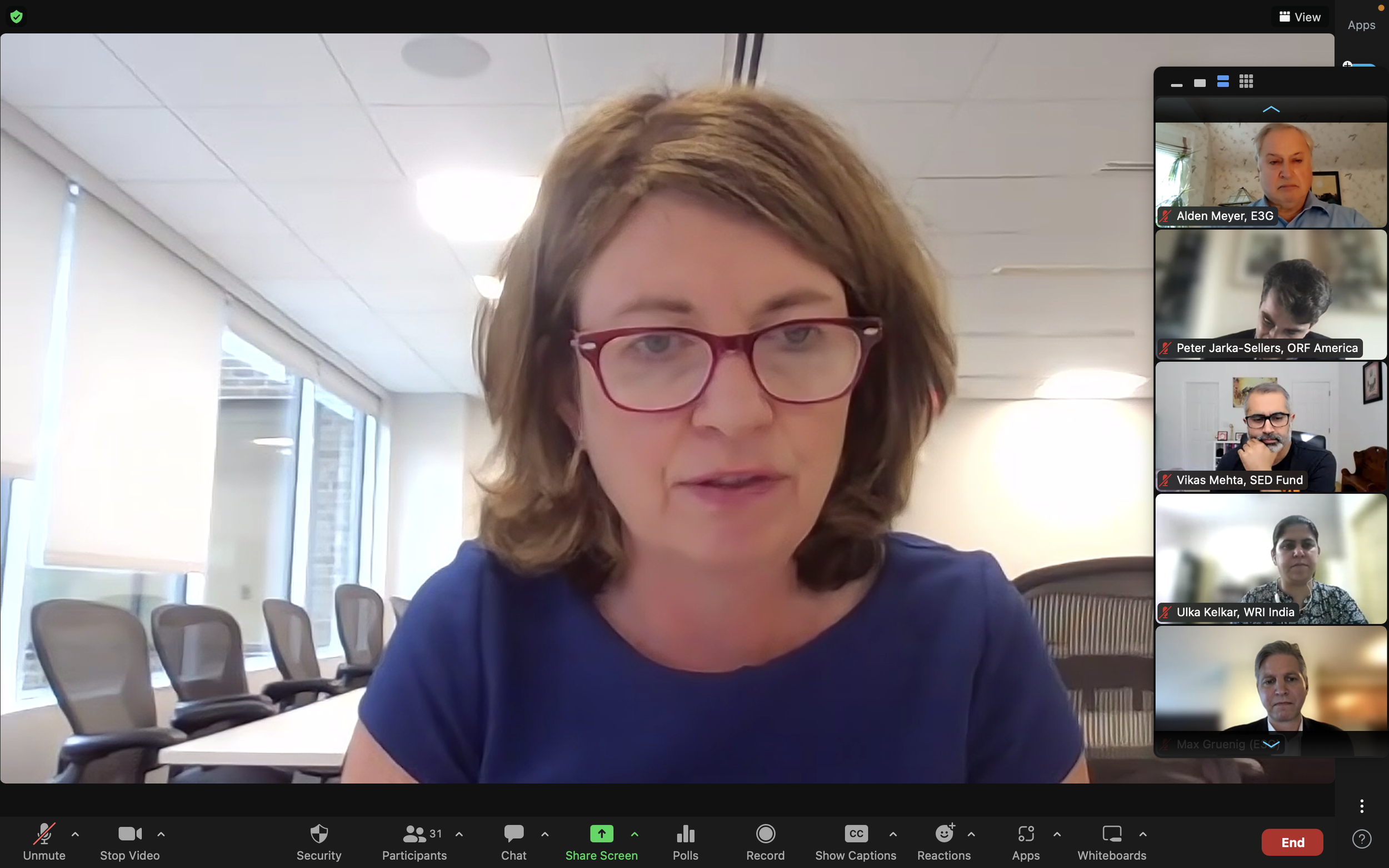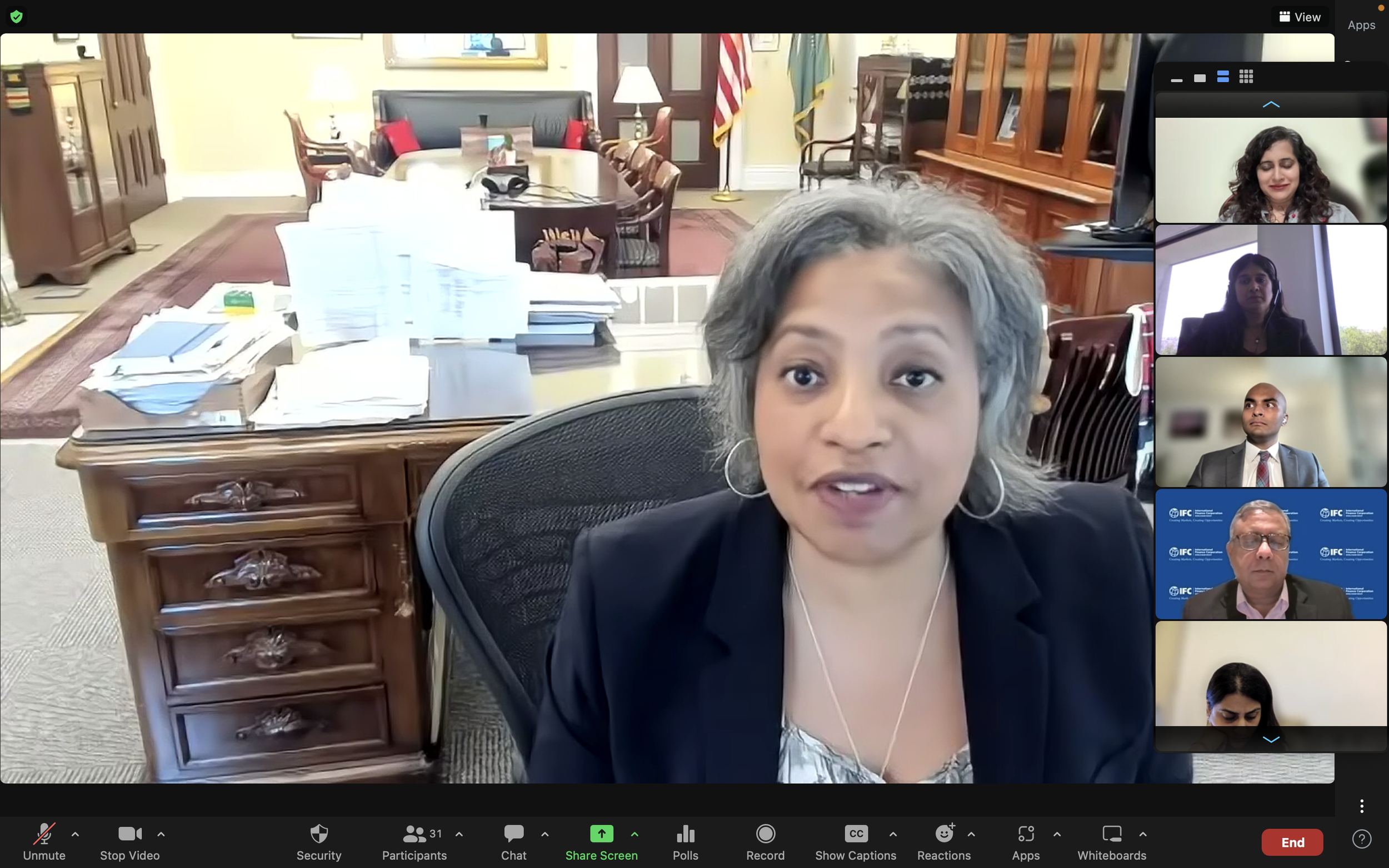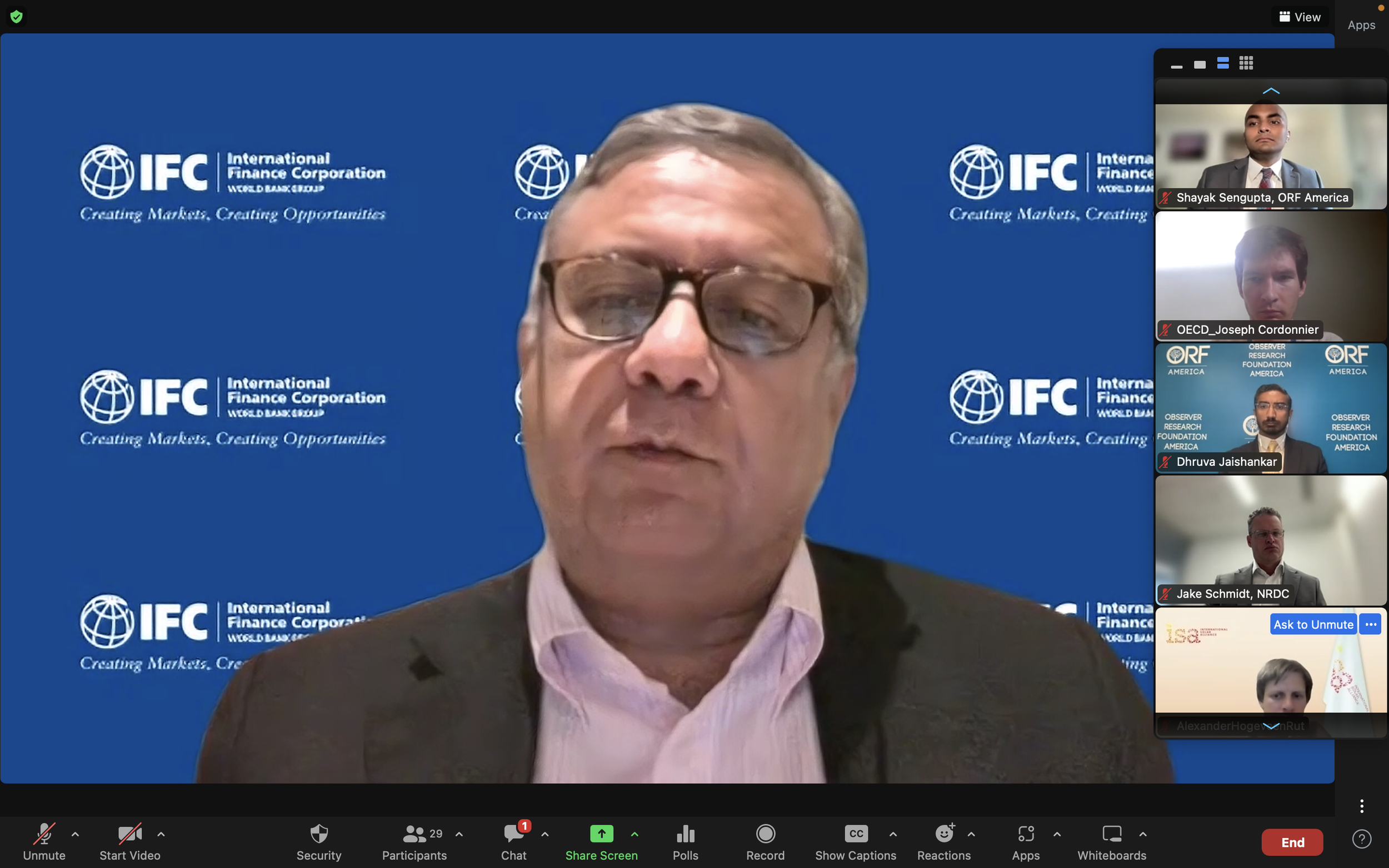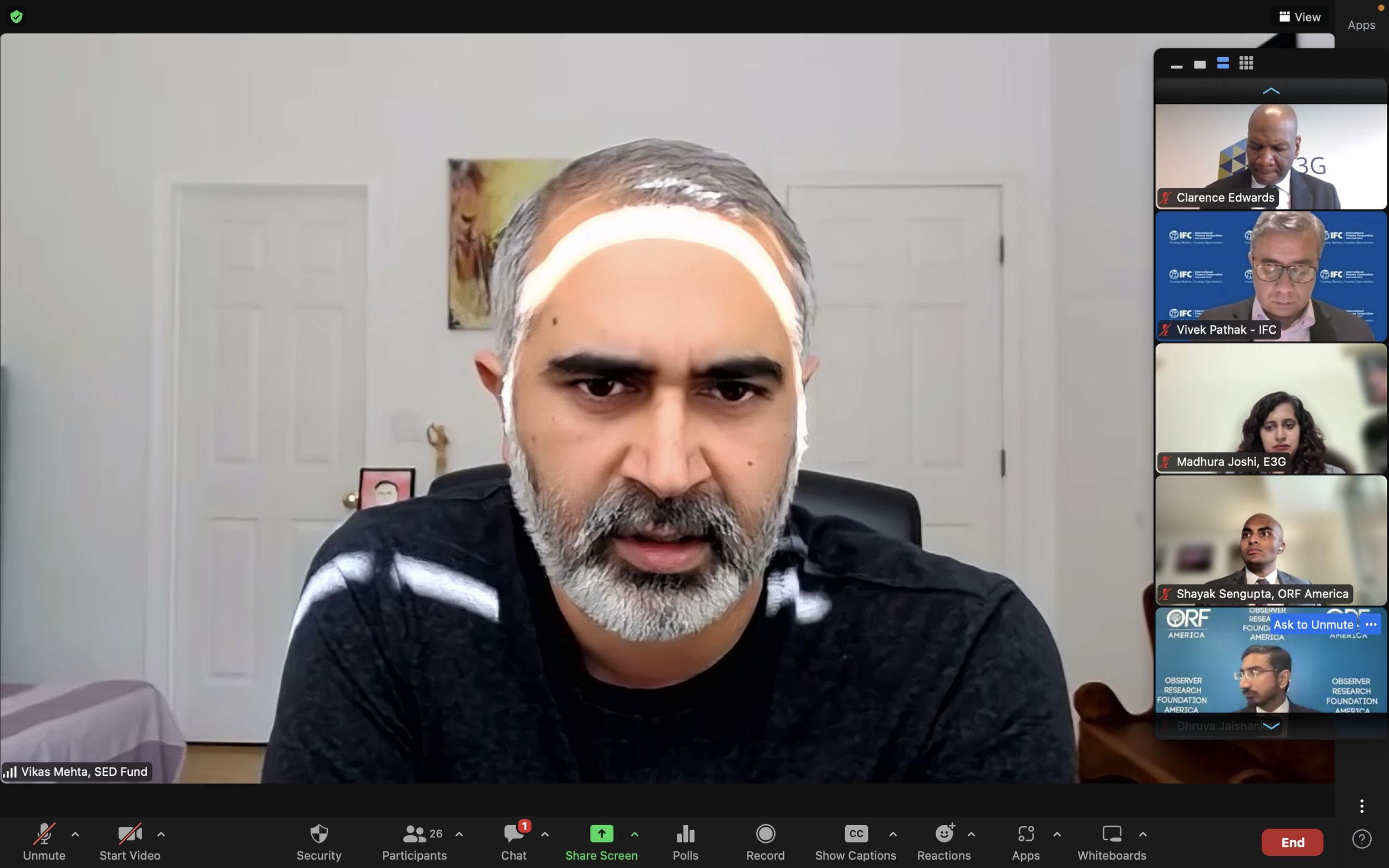Background
On May 30th, U.S. and Indian government officials as well as leaders of multilateral, and civil society organizations working on energy transition and climate finance joined ORF America, E3G, and the Embassy of India in Washington, DC, for an informative closed-door virtual dialogue. Dr. Ravi Kota, the head of the economic wing of the Indian Embassy in Washington DC, gave a keynote address on behalf of the Ambassador of India to the United States, Amb. Taranjit Singh Sandhu. The panel was followed by a roundtable discussion.
Participants discussed how multilateral action on energy transition and climate finance can accelerate and the role of the U.S.-India strategic clean energy partnership could play in advancing solutions.
Discussion Summary
Participants saw strong potential in the U.S.-India partnership and noted both countries’ ambitious targets, their membership in many of the same multilateral organizations, and their clean energy commercial ties. Two key issues highlighted were the need for rapid expansion of clean energy and energy efficiency measures, and measures to finance the energy transitions. Studies show that to keep the world on track to meet temperature goals, renewable capacity additions will need to increase from current 300GW to over 1TW by 2030. Rapid, equitable, and sufficient growth clean energy is required to phase-down and phase-out of fossil fuels.
In particular, the conversation focused on the challenges of financing the energy transition and measures that can mobilize increased climate finance. Participants described progress on clean energy financing which is expected to surpass fossil fuel financing globally in 2023. Nevertheless, they explained that the ratio of clean energy to fossil fuel finance needs to be close to 10:1 in 2030 compared to current less than 2:1. Furthermore, participants stressed that climate finance is disproportionately going to developed countries and much more climate finance is needed in developing countries. One of the suggestions was for the G20 to call for a climate solidarity pact, calling on major countries to put extra efforts and wealthy nations to mobilize funds and the needed technology support.
In developing countries, real and perceived investment risks and emerging industries can make it difficult to attract private capital for the energy transition. Particular risks that the participants described include currency volatility, less dependable political landscapes, and less developed industries to support investments. The roundtable’s participants also identified a number of potential solutions including asset recycling, risk insurance, loan guarantees, and regional platforms for aggregating demand and pooling in investors. But along with private capital, there needs to be an increase in both domestic and international sources of public funds, particularly for those sectors where it could be difficult to attract private investments, for example power distribution and transmission.
Drawing from the experience of Just Energy Transition Partnerships (JET-P), working on economy-wide transition planning and raising country ambitions is a useful way of signaling high-level political ambition and mobilizing public and private investments. However, participants also emphasized that this must occur with clean energy at sufficient scale and low enough cost to secure energy access. The G20 can play an important role in standardizing the notion of transition planning, which makes it easier for the private sector to get involved. On the JETPs themselves, participants highlighted their potential and the need for developing country-specific models.
Participants also pointed to important solutions such as blended finance instruments for public investment and creating project pipelines for attracting capital. The roundtable also included a productive discussion of disaggregating climate finance. By breaking the energy system into particular sectors and even technologies, financing will become less daunting and it will be easier to identify where financing is most necessary, what the best sources of funding are, and where risk lies. The participants concluded that solutions are there but unlocking climate finance means further prioritizing the challenges and developing new financial and policy instruments.
Keynote
Dr. Ravi Kota, Minister (Economic), Embassy of India in the United States on behalf of Taranjit Singh Sandhu, Ambassador of India to the United States
Panel
Dinesh Jagdale, Joint Secretary, Ministry of New and Renewable Energy, India
Alexia Latortue, Assistant Secretary for International Trade and Development, U.S. Department of Treasury
Vivek Pathak, Director and Global Head of Climate Business, International Finance Corporation
Claire Healy, Senior Associate, E3G (Moderator)
